What do I say when I’m asked “Are you LDS?” What is mine to claim?
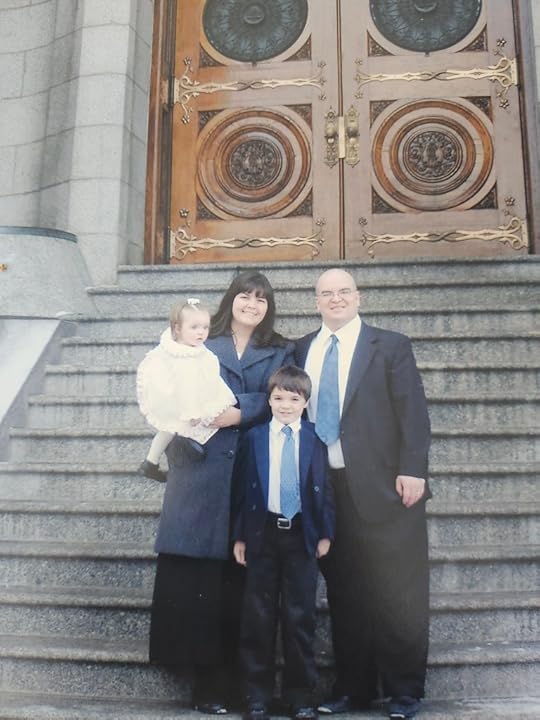 A discussion of the complexity of the question “Are you LDS?” for one Exponent blogger exploring layers of identity
A discussion of the complexity of the question “Are you LDS?” for one Exponent blogger exploring layers of identityWhat is my identity and what is mine to claim? Can I claim being LDS as a layer in my identity? Is it accurate? These questions aren’t easy answers for me like they once were. When asked at church “Who are you?” I gave the memorized and instant reply “I’m a daughter of Heavenly Father who loves me and I love him.” This identity of divine worth as a child of God has been with me since my earliest memories because I was born into and raised in the faith. Primary teachings focus a lot on being a child of God and Young Womens’ focus was specifically on being a daughter of Heavenly Father (no, I never was taught about Heavenly Mother).
Growing up in the church, I often heard the story of Joseph F Smith being followed by a group of men who had nefarious intentions. The way I remember it, they pulled him off his horse and asked him menacingly if he was a Mormon. He replied “true blue through and through” with pride. This was the gold standard response, the one that was expected of me when asked. Even as a child I was taught lessons about the importance of being willing to die rather than deny my faith.
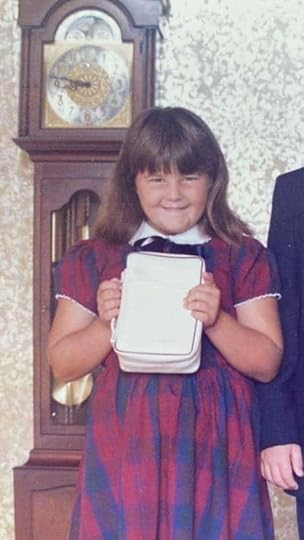
While living in Utah, a common question I was asked was “Are you Mormon?” That eventually changed to “Are you LDS?” but to me it’s the same question. One of the times I was asked this was when I had started a work from home job that worked perfectly with my kids’ school schedule. I had earned a dinner with the director and other high performers and was anxious and excited about the opportunity. The director shook my hand, asked where I lived, and when I told him he said “Oh! Are you LDS?” and I froze for a moment in panic.
It turned out that he lived in the same Eagle Mountain neighborhood and wanted to know if we were in the same ward. The question surprised me (I mean hello HR?) but also it was the first time anyone had asked me that question since I had stopped attending church services due to realizing my beliefs weren’t compatible with the religion I was raised in. In a split second before answering the director of the company, my brain was processing “am I still LDS if I don’t believe? My pioneer ancestors sacrificed so much, am I dishonoring them by not claiming my heritage? Am I going to be affected by bias (intended or unconscious) if I say no? Does saying no wipe away the last 36 years of my life living as a Mormon?”
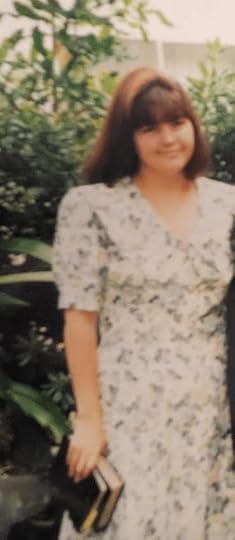
Now that I live in Washington I don’t get asked this question and I don’t miss being asked. Because the truth is, it’s very complicated for me and I’ve been conditioned to believe that if I don’t proudly claim it, I’m not living up to the gold standard that was set and has been expected of me since my years as a child in primary. If I were to claim it, I’d feel like a religious imposter. If I respond “it’s complicated” it triggers questions I don’t want to answer. If I say “no, I’m ex-Mormon” peoples’ reactions are often weird or uncomfortable. For me, the question instantly raises complex and contradictory emotions of grief and pride, of loss and freedom.
Generations of LDS ancestors helped form my cultural identity. When I meet other people who have spent significant time as a believing Mormon and no longer believe, I feel a kinship. They understand me on a level that people who haven’t spent decades in the church cannot and in a way that people who believe and haven’t suffered the emotional and even physical effects of leaving the church cannot. How can I possibly sum up the totality of my experiences of good and bad, of being uplifted and abused, of being devout and disaffected in my answer?
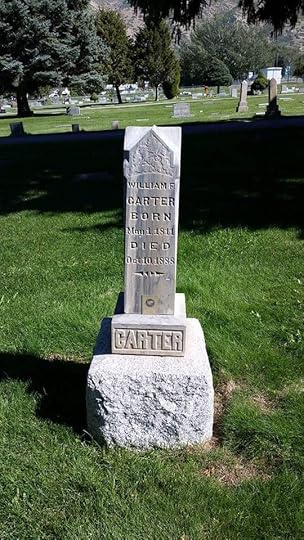
I have often heard the phrase “people who leave the church cannot leave it alone” and the phrase has always, even as a devout member, given me the ick. I just don’t think it’s a fair assessment and to me it sounds dismissive and defensive. Maybe there are people who can spend their lives being devoutly LDS and then walk away and never talk about it, analyze it, try to figure out where the line of LDS identity ends or seek therapy after “leaving the church” but that hasn’t been my experience. I’ll admit there have been times in my life since I stopped believing that something terrible has happened and my mind instantly goes to “this wouldn’t have happened if you would have stayed in the church.” This is a common and unfair thought many people experience because this was a message we received our entire lives. It’s one of many messages that are unwelcome luggage in my faith and identity journey.
So far it’s been impossible to try to disentangle myself from Mormonism. Somehow when I removed over 50 LDS books from our home library my LDS identity didn’t get boxed up with them. Despite clearing my cedar chest of religious keepsakes I still find relics like copies of my patriarchal blessing or pass along cards among my things. When I donated my temple clothing to saints in need it didn’t erase my memory of my new name. When I sold all my Young Women Medallions to a sister who was recently called to serve in the program all the efforts I made to earn them weren’t forgotten.
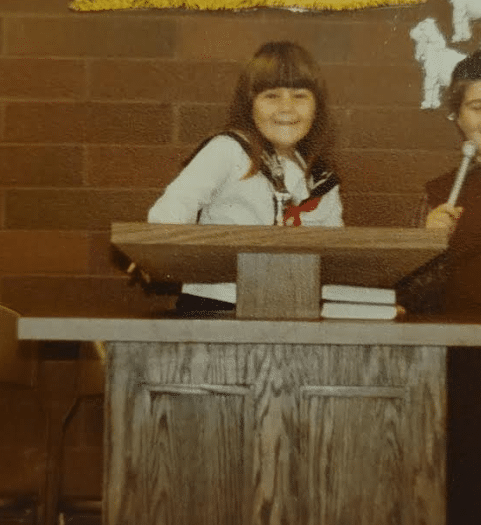
Getting to know new people has always been interesting but now living in a place where many of my core memories or chapters in my life (like a ridiculously short engagement) are not common/shared experiences I feel a bit awkward. Don’t get me wrong, I absolutely love it here but I’d be lying if I said I don’t sometimes feel like an alien around coworkers. I used the word “mete” the other day. Apparently that isn’t a word known outside of religion. Knowing the LDS language served me well in Utah. If you don’t think we have a language I challenge you to ponderize it. See what I did there? Now I’m wondering how to change my language patterns because I want to and I can’t figure it out.
I linger in this space that feels neither in between or past while I try to sort out the many layers of my identity and what is mine to claim.
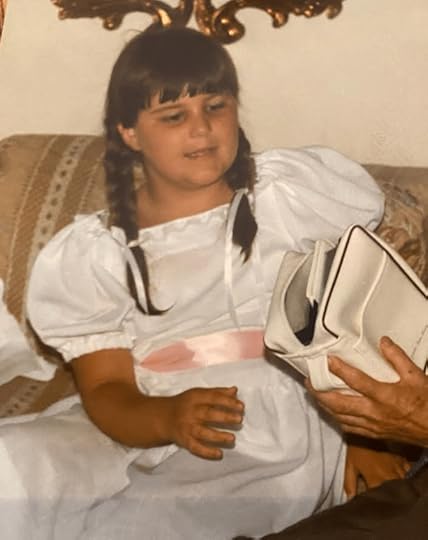
Someday, I hope I’ll figure it all out. For anyone else who feels similarly, I hope you do too.
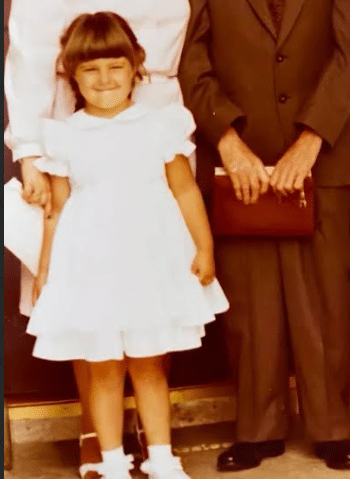
What do you say when asked “Are you LDS? The Exponent blog welcomes guest submissions. Learn more about our post guidelines and the submission form on our guest post submission page.
The blog is free to read, but not free to host! Check out our donation page to support our site.



